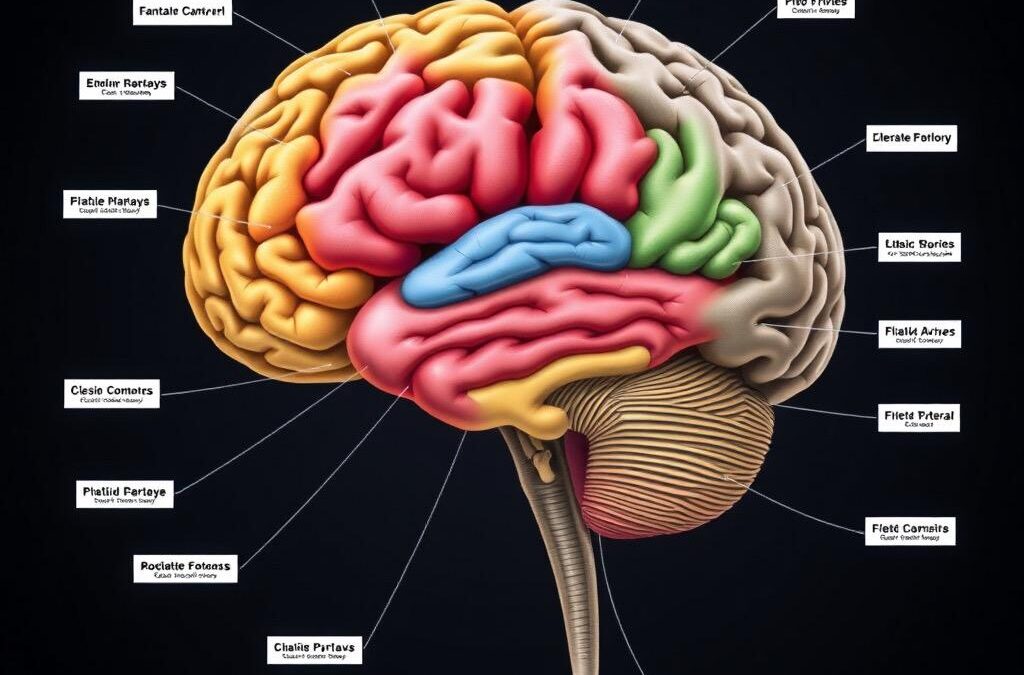The prefrontal cortex is a vital brain structure responsible for a wide range of cognitive and emotional functions. It plays a crucial role in regulating behavior, making decisions, and managing emotions. This area becomes particularly significant when discussing addictions, as its deterioration can lead to severe consequences in individuals’ lives.
Functions of the Prefrontal Cortex
The prefrontal cortex is associated with several essential capabilities:
Decision Making : It evaluates the long-term consequences of actions, enabling informed and thoughtful choices.
Impulse Control : This region regulates impulsive behaviors, helping individuals resist temptations and think critically before acting.
Emotional Regulation : It manages emotional responses, allowing for appropriate reactions to various situations.
Planning and Organization : The prefrontal cortex assists in formulating plans and executing complex tasks effectively.
Impact of Addictions on the Prefrontal Cortex
Addictions, whether to substances like alcohol and drugs or behaviors like gambling, significantly impair the functionality of the prefrontal cortex:
Deterioration of Impulse Control : Individuals struggling with addiction often find it increasingly difficult to resist impulses, leading to choices that reinforce their addictive behaviors.
Alterations in Decision Making : Risk assessment becomes compromised, resulting in a tendency to overlook the negative consequences of actions.
Emotional Dysregulation : The inability to effectively manage emotions can lead to anxiety, depression, and stress, perpetuating a cycle of low self-esteem and self-destructive behavior.
The Regenerative Potential of Ayahuasca
Ayahuasca is a traditional brew used by Indigenous communities in the Amazon for centuries for both ceremonial and healing purposes. Its primary components, DMT and a monoamine oxidase inhibitor (MAOI), interact uniquely with the brain, offering significant regenerative potential.
Neurogenesis and Brain Plasticity:
Research indicates that ayahuasca promotes neurogenesis, particularly in the hippocampus and prefrontal cortex, which are critical for memory and emotional regulation.
Brain plasticity allows for the adaptation and formation of new neural connections, assisting in the restoration of impaired functions.
Reconfiguration of Neural Networks:
Ayahuasca experiences can facilitate the reorganization of neural networks associated with decision-making and impulse control.
This reconfiguration can enhance individuals’ ability to make informed decisions and resist addictive impulses.
Deep Introspection:
Ayahuasca ceremonies provide a safe space for profound introspection, enabling participants to confront underlying traumas and self-destructive patterns.
This process fosters greater self-awareness and encourages a reevaluation of personal values and priorities.
Altered Perception:
Ayahuasca can shift individuals’ perceptions of self and reality, allowing them to view their addictions from a new, transformative perspective.
Such changes can inspire motivation for recovery and personal growth.
Spiritual Connection and Purpose:
Many participants report experiencing a deep sense of spiritual connection during ceremonies, which can foster a renewed sense of purpose in life.
This feeling of belonging and connection can be vital for recovery, especially for those whose addictions often stem from feelings of isolation and alienation.
Important Considerations
It is essential to approach the use of ayahuasca with care and respect:
Expert Guidance : Participating in ceremonies under the supervision of experienced shamans or trained facilitators is crucial for ensuring a safe and meaningful experience.
Safe Environment : A controlled and respectful setting is vital to allow participants to immerse themselves in the process without distractions or risks.
Post-Ceremonial Integration : Integrating the insights gained during the ceremony is vital for lasting change. This may include therapy, support groups, and self-care practices.
Conclusion
The prefrontal cortex plays a pivotal role in behavior regulation and decision-making, and its deterioration is closely linked to addictions. Ayahuasca, through its effects on neurogenesis, neural reconfiguration, and deep introspection, offers a pathway to regenerate this critical brain area. In doing so, it helps individuals overcome addictive patterns and rediscover a renewed sense of purpose and well-being. However, it is essential that this journey is undertaken with intention and guidance to maximize its benefits and ensure lasting transformation.
Ayahuasca Peru Best Ayahuasca Retreats Peru Ayahuasca Iquitos Shamanic School Peru Flower of life Ayahuasca Peru Ayahuasca Healing Center
We would be delighted to welcome you to our sanctuary, where experienced shamans and facilitators will guide you through sacred ceremonies and rituals with reus at the Flower of Life Ayahuasca Healing Center for an unforgettable experience in the heart of Peru’s Amazonian Rainforest. Embrace the opportunity to reconnect with yourself, nature, and the sacred traditions of the jungle, and embark on a journey of self-discovery and empowerment. We look forward to walking this path with you and supporting you on your quest for healing and transformation.
www.floweroflifeperu.com

